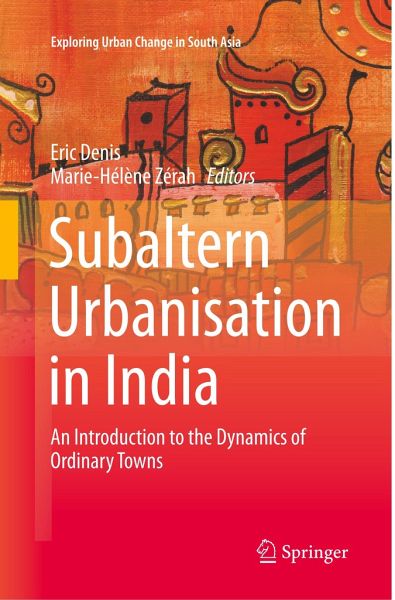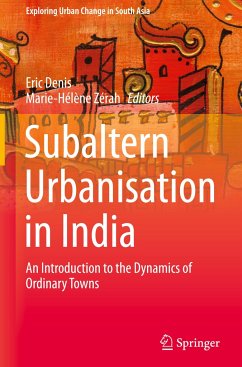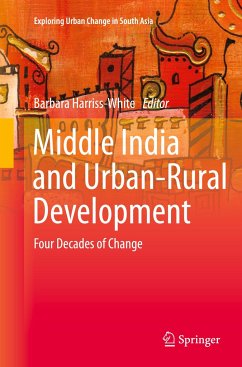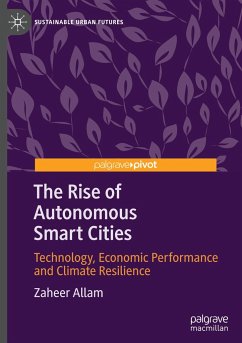
Subaltern Urbanisation in India
An Introduction to the Dynamics of Ordinary Towns
Herausgegeben: Denis, Eric; Zérah, Marie-Hélène
Versandkostenfrei!
Versandfertig in 6-10 Tagen
122,99 €
inkl. MwSt.

PAYBACK Punkte
61 °P sammeln!
This volume decentres the view of urbanisation in India from large agglomerations towards smaller urban settlements. It presents the outcomes of original research conducted over three years on subaltern processes of urbanization. The volume is organised in four sections. A first one deals with urbanisation dynamics and systems of cities with chapters on the new census towns, demographic and economic trajectories of cities and employment transformation. The interrelations of land transformation, social and cultural changes form the topic of the "land, society, belonging" section based on ethnog...
This volume decentres the view of urbanisation in India from large agglomerations towards smaller urban settlements. It presents the outcomes of original research conducted over three years on subaltern processes of urbanization. The volume is organised in four sections. A first one deals with urbanisation dynamics and systems of cities with chapters on the new census towns, demographic and economic trajectories of cities and employment transformation. The interrelations of land transformation, social and cultural changes form the topic of the "land, society, belonging" section based on ethnographic work in various parts of India (Karnataka, Himachal Pradesh, Arunachal Pradesh and Tamil Nadu). A third section focuses on public policies, governance and urban services with a set of macro-analysis based papers and specific case studies. Understanding the nature of production and innovation in non-metropolitan contexts closes this volume. Finally, though focused on India, this researchraises larger questions with regard to the study of urbanisation and development worldwide.












